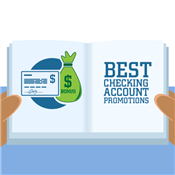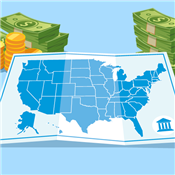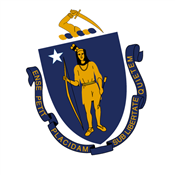Best Student Checking Accounts
Ad Disclosure: This article contains references to products from our partners. We may receive compensation if you apply or shop through links in our content. This compensation may impact how and where products appear on this site. You help support CreditDonkey by using our links.
A student checking account allows you to manage your money with fewer fees and requirements. Find the best student checking accounts offered by the top banks.
 |
Chase College Checking℠ - $125 Bonus
- Enjoy $125 as a new Chase checking customer when you open a Chase College Checking℠ account and complete 10 qualifying transactions within 60 days of coupon enrollment.
- $0 Monthly Service Fee while in school up to the expected graduation date provided at account opening (five years maximum) for students 17-24 years old.
- Wire funds internationally using the Chase Mobile® app or chase.com. Send money to recipients around the world with multiple currency options. Fees apply.
- Keep track of your money with confidence and control in the Chase Mobile® app. The Chase Mobile app helps you bank securely and conveniently from anywhere.
- With Zelle®, you can send and receive money with people and businesses you know and trust who have an eligible account at a participating U.S. bank.
- With Fraud Monitoring, Chase may notify you of unusual debit card purchases and with Zero Liability Protection you won't be held responsible for unauthorized debit card purchases when reported promptly.
- JPMorgan Chase Bank, N.A. Member FDIC
A student checking account is one of the first important money decisions in your life.
Not only does it make managing money easier, but you also learn financial responsibility and start to build a banking relationship. It's important to choose the right bank for you.
Banks know that students don't have regular income. They offer accounts specifically for their needs. This usually means no monthly service charge, no balance requirements, and fewer fees.
The 11 best checking accounts for students are:
How Student Checking Accounts Compare
 | |
| Learn More | |
Chase College Checking℠ - $125 Bonus | |
|---|---|
| Monthly Fee | $0 Monthly Service Fee for students 17 to 24 years old at account opening enrolled in college or a vocational, technical or trade school, up to the graduation date provided at account opening (five years maximum) or $15 Monthly Service Fee |
| ATMs | |
| Learn More |
The CAMPUS rule helps students remember the key aspects to consider when choosing a checking account:
- Cost: Look for accounts with low or no fees.
- Accessibility: Ensure the account offers easy access to ATMs and branches.
- Mobile banking: Check for a good mobile banking app.
- Perks: Look for additional benefits or perks for students.
- User experience: The account should be easy to use and manage.
- Security: Ensure the account has strong security measures.
Chase College Checking
With more than 5,000 branches and over 15,000 ATMs, Chase is a great choice if you're looking for a nationwide bank. Plus, they have mobile and online banking.
The Chase College Checking account has no monthly fees while in school up to the graduation date provided at account opening (five years maximum) for students 17-24 years old.
Chase College Checking℠ - $125 Bonus
- Enjoy $125 as a new Chase checking customer when you open a Chase College Checking℠ account and complete 10 qualifying transactions within 60 days of coupon enrollment.
- $0 Monthly Service Fee while in school up to the expected graduation date provided at account opening (five years maximum) for students 17-24 years old.
- Wire funds internationally using the Chase Mobile® app or chase.com. Send money to recipients around the world with multiple currency options. Fees apply.
- Keep track of your money with confidence and control in the Chase Mobile® app. The Chase Mobile app helps you bank securely and conveniently from anywhere.
- With Zelle®, you can send and receive money with people and businesses you know and trust who have an eligible account at a participating U.S. bank.
- With Fraud Monitoring, Chase may notify you of unusual debit card purchases and with Zero Liability Protection you won't be held responsible for unauthorized debit card purchases when reported promptly.
- JPMorgan Chase Bank, N.A. Member FDIC
- Monthly Fee: $0 Monthly Service Fee for students 17 to 24 years old at account opening enrolled in college or a vocational, technical or trade school, up to the graduation date provided at account opening (five years maximum) or $15 Monthly Service Fee
Why we like Chase College Checking:
You also get a free Chase Savings Account for no monthly fee when you link this account for Overdraft Protection. There is no fee for an overdraft protection transfer.[1]
One of the biggest advantages of choosing Chase is that you can start building a relationship with Chase early. Chase is known for their extremely popular cash-back and travel reward credit cards, but approval may be a bit more stringent.
With a college bank account, by the time you graduate and are ready for a better credit card, you'll already have a few years of history with Chase. This may give you some extra points when determining approval.
Pros:
- No monthly fees if the student reaches certain requirements
- Free Chase College Checking account when linked for overdraft protection
- A lot of branches and ATMs
Cons:
- No APY
- No ATM fee rebates
Bank of America Advantage SafeBalance Banking®
Bank of America is another huge national bank with thousands of ATMs and financial centers. It's also a good option if you're going to school away from your hometown.
While Bank of America doesn't have accounts specifically for students, the Bank of America Advantage SafeBalance Banking® waives the monthly fee for those under 25.[2]
Why we like Bank of America Advantage SafeBalance Banking®:
The SafeBalance Banking® is a basic checkless banking account. It prevents you from overdrawing your account by declining transactions that you don't have the funds for.
Bank of America also offers a built-in Spending & Budgeting Tool to help you take control of your money. You can set a budget for each category and track your spending.
This helps you form good saving habits by keeping you aware when you're about to overspend. Over time, you'll understand your spending habits and adjust it to make sure you don't spend more than you have.
Students and young adults under 25 may also be eligible for fee waivers on Bank of America Advantage Savings account. It has a "Keep the Change" program that automatically saves the change from your debit card purchases. This allows you to build savings without thinking.
Pros:
- Built-in Spending & Budgeting Tool
- Waives monthly fees for under 25
- Send and receive money with Zelle®
Cons:
- No paper checks
- Opening deposit requirement
Bank of America Advantage Banking - Up to $500 Cash Offer
- The cash offer up to $500 is an online only offer and must be opened through the Bank of America promotional page.
- The offer is for new checking customers only.
- Offer expires 05/31/2026.
- To qualify, open a new eligible Bank of America Advantage Banking account through the promotional page and set up and receive Qualifying Direct Deposits* into that new eligible account within 90 days of account opening. Your cash bonus amount will be based on the total amount of your Qualifying Direct Deposits received in the first 90 days.
Cash Bonus Total Qualifying Direct Deposits $100 $2,000 $300 $5,000 $500 $10,000+ - If all requirements are met 90 days after account opening, Bank of America will attempt to deposit your bonus into your new eligible account within 60 days.
- Bank of America Advantage SafeBalance Banking® for Family Banking accounts are not eligible for this offer.
- Additional terms and conditions apply. See offer page for more details.
- *A Qualifying Direct Deposit is a direct deposit of regular monthly income – such as your salary, pension or Social Security benefits, which are made by your employer or other payer – using account and routing numbers that you provide to them.
- Bank of America, N.A. Member FDIC.
Capital One 360 Money (for Teens)
You don't even have to wait until college to open your first checking account. Capital One 360, a popular online bank, offers a checking account specifically for high school students.
MONEY Teen Checking Account
- Minimum Deposit to Open: $0
- Balance Requirement: $0
Why we like Capital One 360 MONEY:
The Capital One 360 MONEY helps teenagers learn money management. This is a great choice for those who want to start saving and nurturing good habits early on.
The teen and a parent will be joint account holders. Teens can make their own money decisions, while parents can monitor what they're up to.
There is no account opening fee and no service fee.[3] When the teen turns 18, he/she can roll over this account into a 360 Checking account.
Pros:
- No minimum opening deposit
- No service fees
- Free debit card in the teen's name
- Earn a little bit of interest
Chime Free Mobile Checking
If you don't need to visit a physical branch, then consider opening an online-only account.
Chime is an app geared specifically towards young adults. There are no monthly fees or balance requirements.
Free Mobile Checking
- Balance Requirement: $0
- Perks: Get Paid Early, SpotMe up to $200, no foreign transaction fees
Why we like Chime Free Mobile Checking:
Chime is great for students since there's no credit or ChexSystems check to open an account.
It's also ideal for those who want to save because they have an automatic savings program to help grow your savings. You can choose to round up change and/or auto-save a percentage of your paycheck.
Chime also has a great SpotMe feature. You can overdraw your account up to $200, and Chime will cover it with no overdraft fees. You're eligible to enroll once you have at least $200 in total monthly direct deposits.[4]
Pros:
- No monthly fees
- Free Visa debit card
- A lot of fee-free ATMs
- Automatic savings feature
Cons:
- No physical branches
- Mobile check deposits only available after signing up for direct deposits
U.S. Bank Smartly Checking
For those living and studying in the West and Midwest states, U.S. Bank is another solid option. With over 2,000 branches and 4,700+ U.S. Bank ATMs across the country, it offers convenient access.
The U.S. Bank Smartly Checking account has a $0 monthly fee and special benefits for students up to 24.[5]
U.S. Bank Smartly Checking for Students
- Minimum Deposit to Open: $25
- Balance Requirement: $0
- Perks: $0 fees at first 4 non-U.S. Bank ATM transactions per statement period; $0 overdraft fees when overdrawn $50 or less
Why we like U.S. Bank Student Checking:
U.S. Bank waives a lot of fees for students. You get the first 4 out-of-network ATM fees free, and no overdraft fees if you overdraw by $50 or less.
U.S. Bank also partners with many colleges in its service areas. If your school participates in one of the campus banking programs, you can get additional benefits, such as on-campus branches and customer advisory centers.
You can even get a campus card that combines your student ID with your U.S. Bank debit card! Plus, enjoy complimentary access to Greenlight's debit card and money app, making spending and saving fun.
Pros:
- Four "no fee" non-U.S. Bank ATM transactions per cycle
- No monthly fees for students
- Free U.S. Bank Visa debit card
Cons:
- Doesn't earn interest
- Minimum opening deposit amount
Axos Essentials Checking
Axos Essentials Checking is great for those who are looking for an account that's practically fee-free. This account isn't specifically just for college students, but it offers great perks that are definitely student-friendly.
This straightforward account is great if you want to be able to hold your money in an account without all the extra fees and hassles.
Essential Checking
- Minimum Deposit to Open: $0
- Balance Requirement: $0
- Perks: No overdraft fees; Get paid up to two days early
Why we like Axos Essentials Checking:
Who likes fees, right? We like this account because it has no monthly fees and no overdraft fees. We especially like their unlimited domestic ATM fee rebates.
They also make banking easy through their mobile app. Lost your card? Just deactivate it using your mobile app. Not so good at remembering when your bills are due? No problem! You can "set it and forget it" by setting up auto-pay.
Pros:
- No monthly fees
- Great mobile security features
- Unlimited domestic ATM fee rebates
- Get paid up to 2 days early
Cons:
- Doesn't earn interest
PNC Simple Checking
PNC Simple Checking is a straightforward checking account that works well for students who want easy access to everyday banking without unnecessary complexity.
And if you are under 25 or have any qualifying direct deposit, you don't need to pay monthly fees.
Why we like PNC Simple Checking:
We like this account because it keeps banking simple for students who want an affordable checking option without worrying about overdraft fees.
Students under age 25 or those with any qualifying direct deposit can avoid the monthly fee. The account also includes full access to PNC's mobile app, online banking, and balance alerts.
Pros:
- No monthly fee for students under 25
- No overdraft fees
- No minimum deposit to open online
- Easy-to-use mobile app and online banking
Cons:
- Monthly fee applies if waiver requirements aren't met
- Limited branch availability outside PNC's service areas
Ally Bank Interest Checking
Want to earn a little interest while saving? This interest checking account that Ally offers has almost no fees. So it's good for those who want to maximize the growth of their money.
Interest Checking
- Balance Requirement: $0
- Perks: Up to $10 ATM fee reimbursements per month
Why we like Ally Bank Interest Checking:
With an account that not only earns interest but is also practically fee-free, you can grow your money much faster.
Plus, they make access to your money easier with thousands of ATMs nationwide. And on the off chance you can't find one of their fee-free ATMs, you can use any ATM, and Ally will reimburse you up to $10 per statement cycle.
Pros:
- Interest earning
- no monthly/overdraft fees
- ATM fee rebates
Truist Student Checking Account
Truist One Checking is an interesting account that gives you more benefits the more you "level up." You're able to level up the more money you put into the account. You can get all the way to level premier.
Basically, each level just gives some additional perks and benefits like extra free checks, credit card bonuses, and extra no-fee ATM withdrawals.
If you're a student under the age of 25, the monthly fee is waived. And they have no overdraft fees.
Why we like Truist Student Checking Account:
The rewards system that they offer makes sure that as you put in more money, you're able to get more benefits. This is a great motivator to save more!
Plus, the benefits they offer at just Level 1 are already great. You get a set of free 10-pack personal checks, a debit card, and a Truist One Savings account with no monthly fee.
They also have a $100 Negative Balance Buffer for eligible users. You can accidentally overdraw your account by $100 and be protected.
Pros:
- ATM fee rebates
- No monthly fees or minimum balance
- Rewards system
- No overdraft fees
Cons
- Doesn't earn interest
Quontic Checking Account
Looking for something completely unique? With innovative checking accounts and even a wearable payment ring, Quontic Bank may appeal to the modern student.
It offers multiple checking account options:
- Cash Rewards Checking: You get 1.00% cashback on all eligible debit card purchases. This lets you get rewarded for your textbook purchases, supplies, eating out, and other daily expenses. The minimum to open is $100.
- High Interest Checking: If you'd rather grow your balance, this account earns up to 1.10% APY when you make at least 10 qualifying debit card transactions of $10 or more per statement cycle APY. The minimum to open is $100.
Note that you need to make at least 10 eligible debit card purchases of at least $10 every month. If you don't, you'll only earn 0.01% interest.
Cash Rewards Checking
- Get 1.00% Cash Back on All Eligible Debit Card Purchases
- $100 minimum opening deposit
High Interest Checking - Up to 1.10% APY
- Earn up to 1.10% APY
- $100 minimum opening deposit
- APY is based on the account balance and making at least 10 qualifying debit card point-of-sale transactions of $10.00 or more per statement cycle.
Why we like Quontic Checking Account:
All checking accounts have no monthly service fee and no minimum daily balance requirements. There are also no overdraft fees.[6] More than being fee-less, they also offer great rewards with their different accounts.
Tech-savvy students will really like the Quontic Pay Ring - the nation's first wearable banking technology. It lets you pay by just knocking your hand against the payment machine. No more pulling out your wallet or phone. And all your Pay Ring purchases get rewards too.
Quontic has a huge ATM network of 90,000+ ATMs. You get free access at any Allpoint, Moneypass, Citibank, and SUM program ATMs.
Pros:
- Quontic Pay Ring - unique technology
- No balance requirements
- No monthly/overdraft fees
Cons:
- Minimum opening deposit of $100
What is a student checking account?
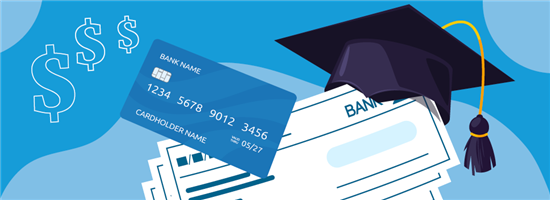 |
Student checking accounts are accounts that are typically aimed at those aged 16-25. They usually have no monthly fees for eligible students while they're at school. They may also have fewer other fees, like overdraft fees.
Upon graduation, usually, your bank will turn your college account into a normal one. This means that any fees that were initially waived for students are no longer waived. Your bank will also now apply any minimum balances required for the account.
How to Choose A Student Checking Account
Not sure what to look out for when choosing the account for you? We get it. There really are a lot of features to consider.
Here are some important things to look out for so you can make the most out of your account:
No Fees:
Generally, students prefer accounts that have lower fees. They don't want to worry about any other extra fees like monthly service fees, minimum balances, or overdraft fees, especially if they're on a tight budget.
Accessibility:
Easy access to money is important. Being able to withdraw money whenever necessary is important to consider. Having a lot of branches and ATMs is a must for easy money access.
Mobile App:
A high-rated mobile app is also important. Being able to see their money and their expenses in real-time can help them keep track of their budget.
Rewards:
Who doesn't like freebies and rewards, right? Some accounts have cashback rewards that will give you some money back for purchases.
It's also a plus not to have to spend for their debit card. The banks on this list offer a free debit card or even free checks.
How to Open a Student Checking Account
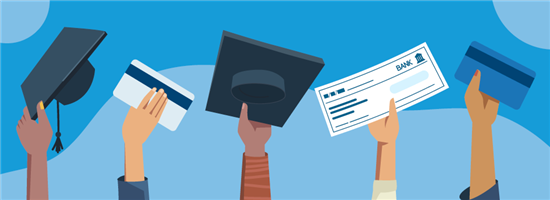 |
To open a student checking account, you usually need:
- To be 18 years of age
- To be a U.S. citizen or legal resident
- Proof of enrollment or acceptance
- Government-issued ID
- Social Security number
Chase College Checking℠ - $125 Bonus
- Enjoy $125 as a new Chase checking customer when you open a Chase College Checking℠ account and complete 10 qualifying transactions within 60 days of coupon enrollment.
- $0 Monthly Service Fee while in school up to the expected graduation date provided at account opening (five years maximum) for students 17-24 years old.
- Wire funds internationally using the Chase Mobile® app or chase.com. Send money to recipients around the world with multiple currency options. Fees apply.
- Keep track of your money with confidence and control in the Chase Mobile® app. The Chase Mobile app helps you bank securely and conveniently from anywhere.
- With Zelle®, you can send and receive money with people and businesses you know and trust who have an eligible account at a participating U.S. bank.
- With Fraud Monitoring, Chase may notify you of unusual debit card purchases and with Zero Liability Protection you won't be held responsible for unauthorized debit card purchases when reported promptly.
- JPMorgan Chase Bank, N.A. Member FDIC
For students under 18, most banks will allow you to open a joint account with an adult.
How we came up with this list
To find the best checking accounts for students, we looked into the necessary fees and made sure to include those with no fees or only very minimal fees.
We also made sure to include accounts that have no minimum balance requirements so that you don't have to worry about any unnecessary fees while you're busy with school work.
There are also interest-earning accounts for those who want to grow their savings.
Who doesn't like bonuses, right? So we also made sure to check out any bonuses or any extra freebies an account offers, like a free debit card or a free set of checks.
FAQ
What is a free student checking account?
A free student checking account is primarily aimed for the use of students aged 16-25. Typically, there are no monthly maintenance fees and no minimum balance requirements while students are at school.
Are free checking accounts free?
Free checking accounts are not always completely free. These accounts are free of any monthly maintenance fees or minimum balance. But it doesn't always mean you won't be charged overdraft fees, ATM withdrawal fees, stop payment fees, etc.
Always check the terms of a "free" checking account. Their website usually lists which fees are waived.
Are Chase checking accounts free for students?
Yes. Chase has an account designed specifically for students aged 16-25. For as long as you are a student, there is no need to pay any monthly maintenance fees or maintain a minimum balance.
Can international students get a checking account?
Yes, international students can open a checking account. Though there are certain documents required by the bank so that you can open one. They'll usually ask for:
- Your passport
- Student visa
- Proof of enrollment or student ID card
- Local US residential address
You can check out this guide for more details.
Bottom Line
A student checking account is a great way to start building a financial foundation. You can start managing your own day-to-day finances, such as making purchases, receiving paychecks, and paying bills.
Plus, the risk of getting into debt is low since you can only use funds you actually have in your account.
We've provided a list of our favorite student checking accounts. Compare the options carefully to make the best choice for you.
Chase College Checking℠ - $125 Bonus
- Enjoy $125 as a new Chase checking customer when you open a Chase College Checking℠ account and complete 10 qualifying transactions within 60 days of coupon enrollment.
- $0 Monthly Service Fee while in school up to the expected graduation date provided at account opening (five years maximum) for students 17-24 years old.
- Wire funds internationally using the Chase Mobile® app or chase.com. Send money to recipients around the world with multiple currency options. Fees apply.
- Keep track of your money with confidence and control in the Chase Mobile® app. The Chase Mobile app helps you bank securely and conveniently from anywhere.
- With Zelle®, you can send and receive money with people and businesses you know and trust who have an eligible account at a participating U.S. bank.
- With Fraud Monitoring, Chase may notify you of unusual debit card purchases and with Zero Liability Protection you won't be held responsible for unauthorized debit card purchases when reported promptly.
- JPMorgan Chase Bank, N.A. Member FDIC
Additional Resources
References
- ^ Chase. Overdraft Protection, Retrieved 9/7/2022
- ^ Bank of America. Bank of America Advantage SafeBalance Banking Clarity Statement, Retrieved 9/1/2022
- ^ Capital One. MONEY Disclosure, Retrieved 9/7/2022
- ^ Chime. Fee-Free Overdraft with SpotMe, Retrieved 9/1/2022
- ^ U.S. Bank. Checking Account for Students, Retrieved 7/7/2023
- ^ Quontic Bank. Schedule of Fees, Retrieved 9/7/2022
Write to Anna G at feedback@creditdonkey.com. Follow us on Twitter and Facebook for our latest posts.
Note: This website is made possible through financial relationships with some of the products and services mentioned on this site. We may receive compensation if you shop through links in our content. You do not have to use our links, but you help support CreditDonkey if you do.




